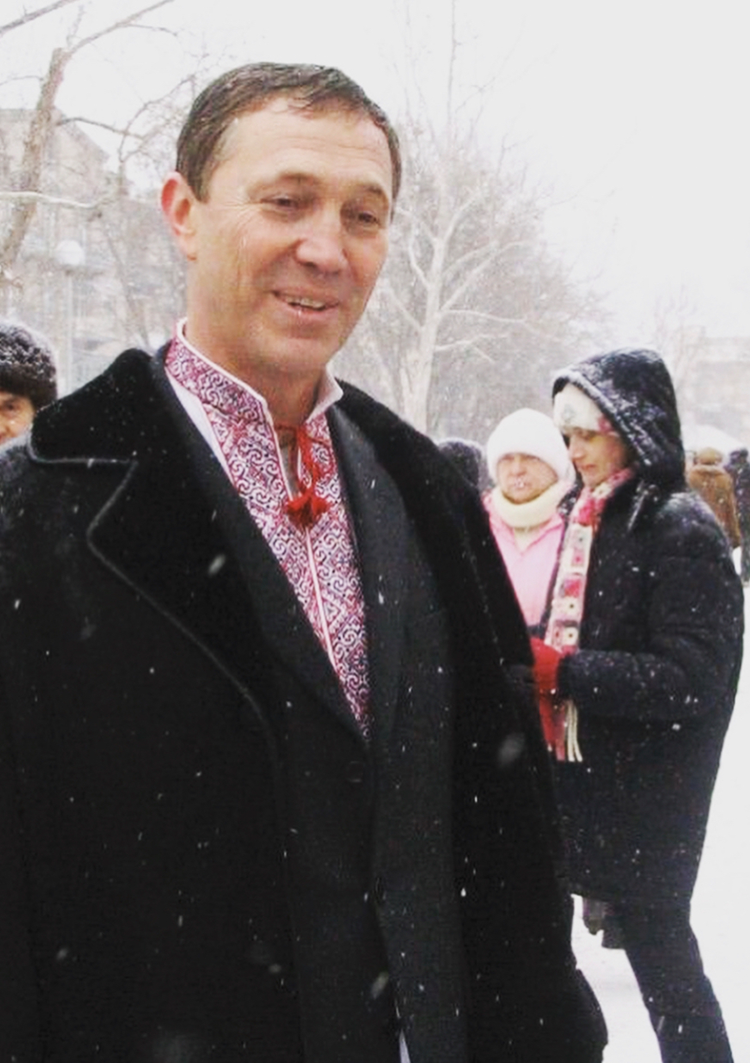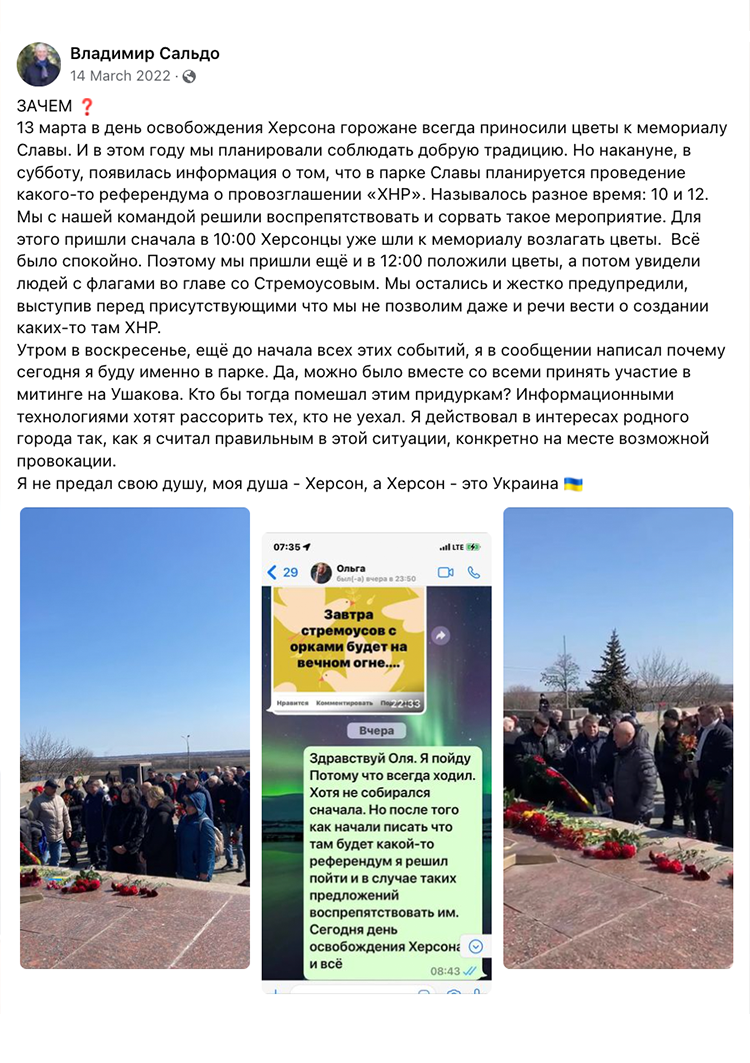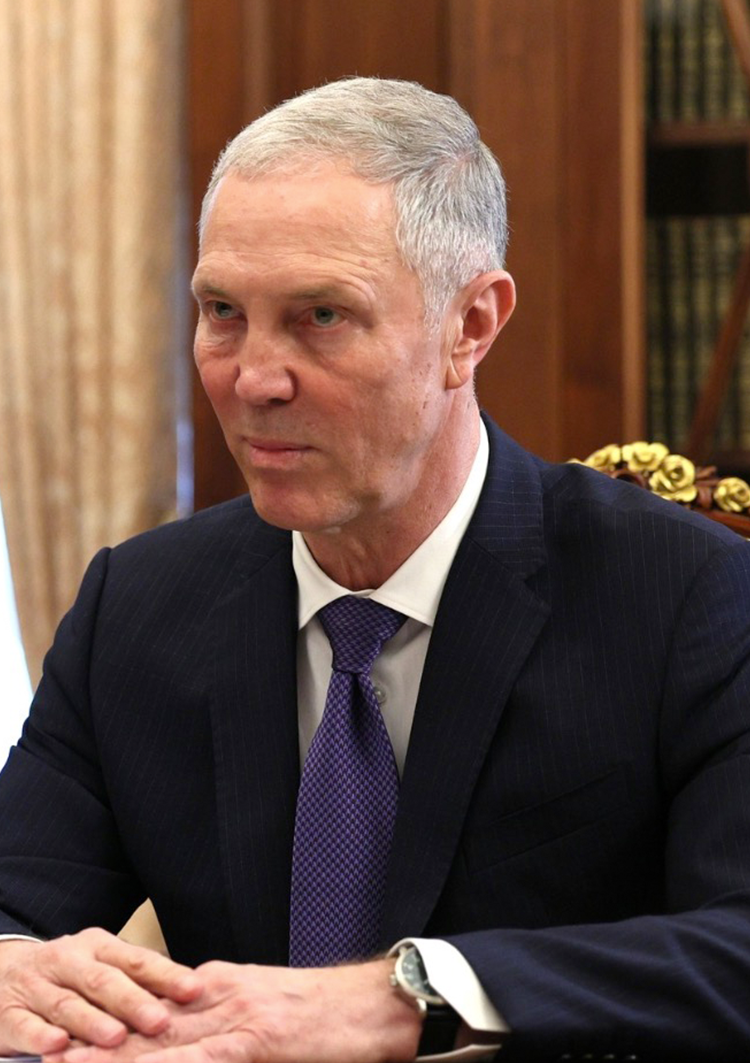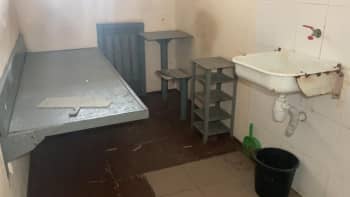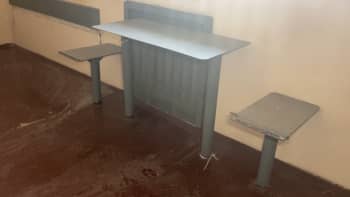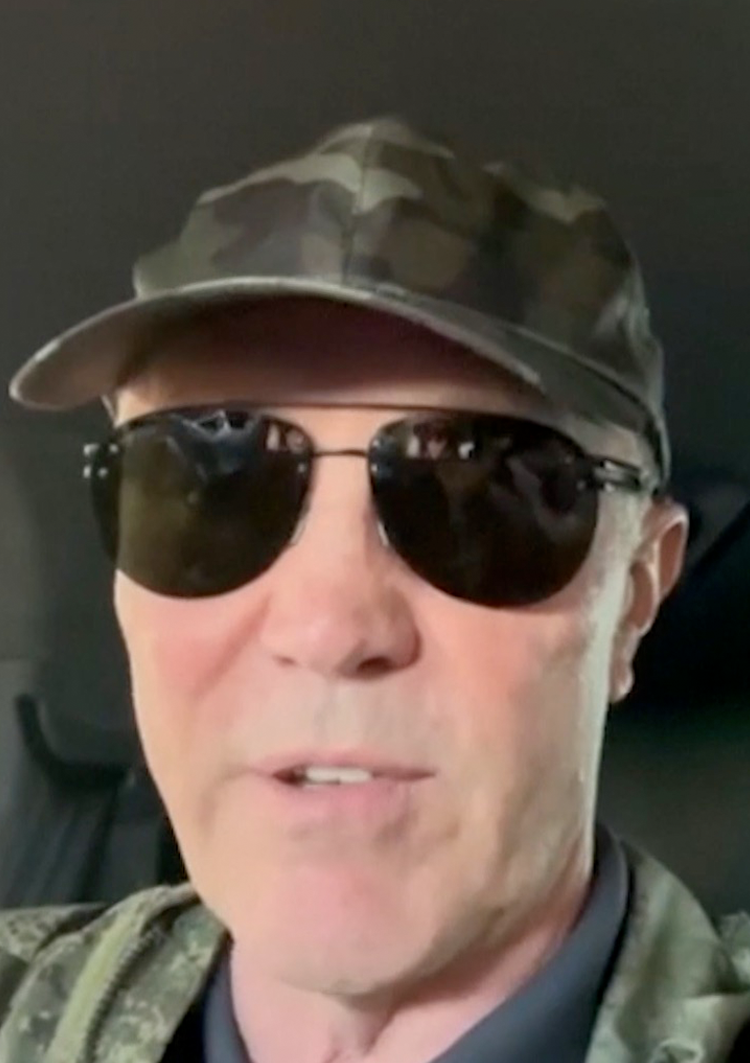Vladimir Saldo
Putin's man in Kherson
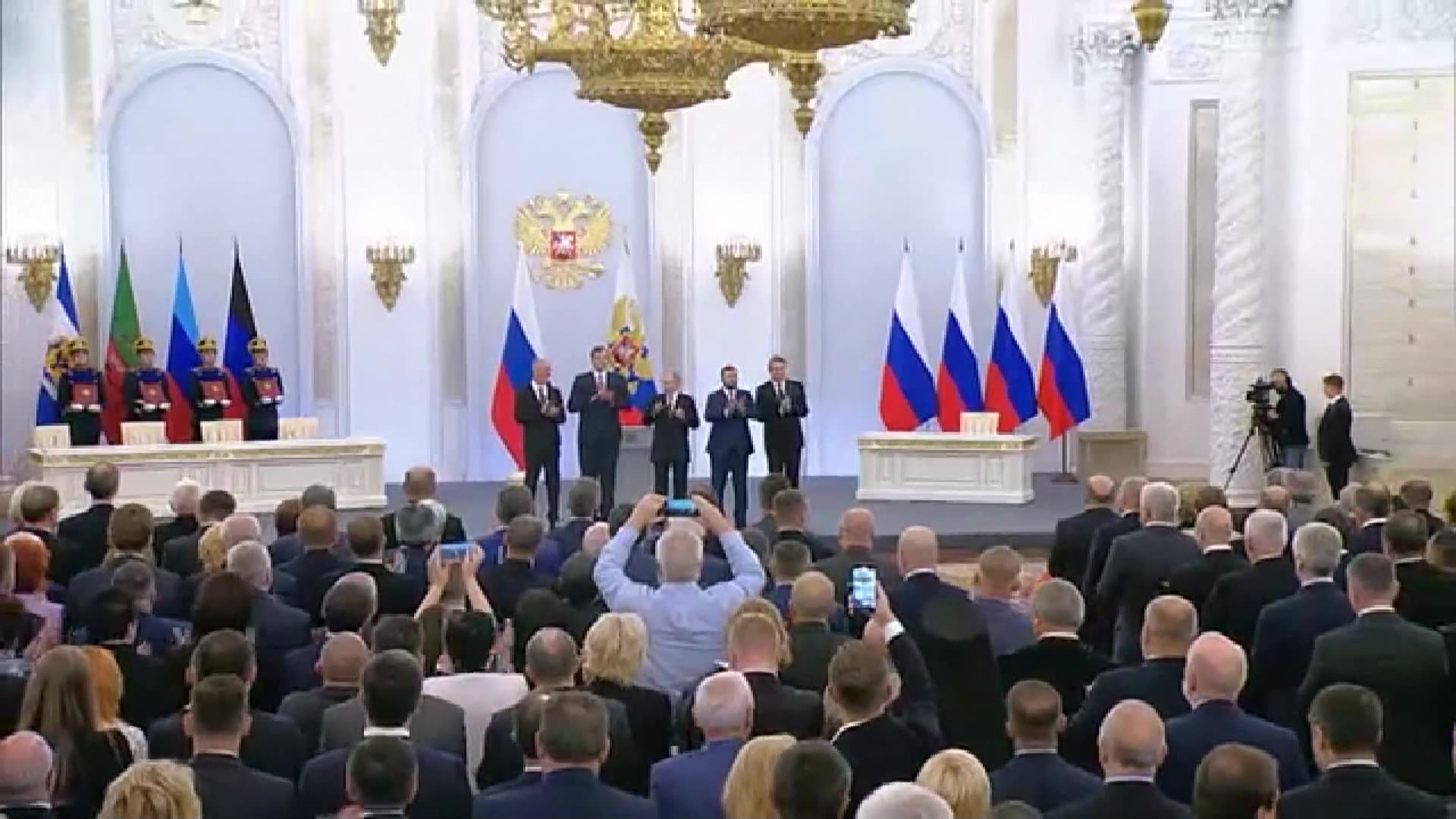
Ranks of loyal politicians burst into applause as the Russian national anthem played, filling the vaulted marble and gold St George Hall in the Grand Kremlin Palace. On stage President Vladimir Putin clasped hands with the self-styled leaders of four east Ukraine territories, newly and illegally annexed by Moscow on September 30, 2022 after a staged referendum.
State TV cameras zoomed in on Putin as he led a raucous chant of ‘Rossi-ya, Rossi-ya,’ then taken up by the whole audience. Moscow’s proxy leaders joined in; among them, lean and sharp-suited Vladimir Saldo who had landed arguably the most difficult job of the four – to bring Kherson province under control and into the Russian state.
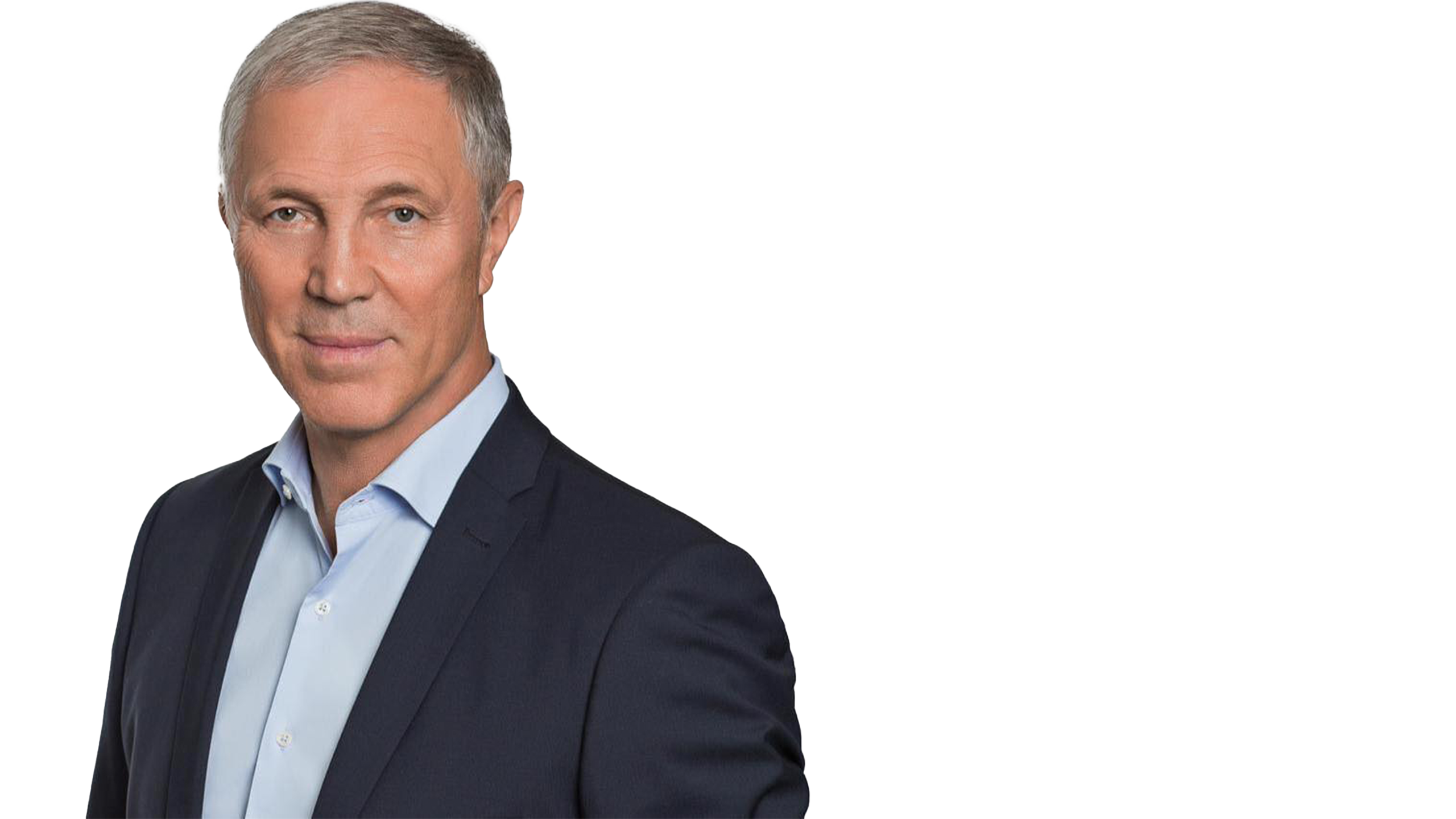
Denis Pushilin and Leonid Pasechnik are veterans of the pro-Moscow separatist forces which since 2014 overran parts of Donetsk and Luhansk regions respectively; Yevgeny Balitsky was brought in to run Zaporizhzhia and Saldo is in charge of Kherson, both territories not fully under Russian control, where there is still fierce fighting along the frontline. Moscow knows Saldo of old. He spent around a year holed up in Russia after the 2014 Maidan uprising overturned a Russia-leaning government in Kyiv.
A critical link in Russia’s planned land corridor to Crimea, Kherson was never significantly pro-Moscow, as other parts of the Donbas became after 2014 under separatist forces. Ukrainians make up the large majority of Kherson region’s population (according to the last census in 2001) and in March 2022 people massed in the streets to protest against Russian forces entering the city. They carried Ukrainian flags and waved posters reading ‘Go Home,’ at Russian troops. But during the nine months of occupation which followed, Moscow crushed dissent and established some control in the region, working through locals willing to join the Russian-imposed administration. Saldo was one of them.
Born in Soviet Ukraine, 67-year-old Saldo started his career as a military adviser in Mongolia, a vast neighbouring nation then in the USSR’s sphere of influence.
Returning home, he worked as a civil engineer until the break-up of the USSR in 1991, when his home region of Kherson voted by more than 90% for Ukraine’s independence – as did neighbouring Zaporizhzhia. Saldo spent the next 10 years in Kherson, managing construction companies which had passed from state to private hands, as Ukraine started to build a market economy.
Saldo wearing a traditional Ukrainian embroidered shirt in 2005. Photo courtesy of Vladimir Saldo
Saldo wearing a traditional Ukrainian embroidered shirt in 2005. Photo courtesy of Vladimir Saldo
The east was Ukraine’s industrial heartland, emerging as a powerful base for Viktor Yanukovych, whose Party of Regions was firmly pro-Moscow. Elected mayor of Kherson in 2002, Saldo was part of this political network but at this time played up his Ukrainian identity and was popular with voters – he would remain in position as mayor for over 10 years.
But Saldo had bigger ambitions and began to build a national profile for himself – one designed to please both Moscow and Kyiv at the time. In 2003 Saldo’s administration erected a monument to the city’s founder, Russian military commander and Empress Catherine the Great’s lover, Grigory Potemkin whose remains lay in the crypt of Kherson’s St Catherine Cathedral. By 2008 he had generated a national publicity profile and was named Ukraine’s best mayor in a national contest ‘Person of the Year – 2008.’
In November 2013 under pressure from Moscow, Yanukovych rejected an EU integration plan. Protests erupted across Ukraine, culminating in the government’s violent attempt to suppress massed ‘Maidan’ demonstrators in Kyiv’s Independence Square; 108 protesters and 13 police died in clashes in February 2014.This sparked a full-fledged uprising, toppling the government.
Days later Yanukovych fled to Russia; Saldo followed soon afterwards. Yanukovych was sequestered in a Moscow luxury suburb while Saldo was in demand on state TV propaganda shows. Speaking Russian with a pronounced Ukrainian accent, he expounded views the Kremlin approved of, that Ukraine and Russia are one nation. Saldo had always been adept at playing both sides to his advantage and even spelled his name differently, depending on his audience – Vladimir when in Russia, Volodymyr in Ukraine.
But when he returned to Kherson in 2016, his political star had waned and he failed in a bid to be re-elected mayor. Kherson’s voters saw him as a figure from the past, representing a political system they no longer wanted. Saldo was seen as a “symbol of devastation, decline, corruption, raider takeovers and gang warfare in the city,” said Kherson journalist Konstantin Ryzhenko, when interviewed in the Russian independent news outlet Novaya Gazeta. He had supported communism during the Soviet Union and actively promoted a Russian agenda after Ukraine gained independence, advocating cultural and social policies to further the so-called ‘Russian World’ during his political career.
Saldo’s alleged involvement in a 2016 kidnapping scandal in the Dominican Republic did little to dispel the murkier aspects of his reputation. Accused by Denis Pashchenko, a businessman from Kherson, of organising his kidnapping, Saldo was arrested and held in a Dominican jail for three months. Pashchenko claimed he had been kidnapped because he had in his possession audio recordings apparently showing Saldo’s collaboration with Russian security services, the FSB. Turning the accusation on its head, Saldo said the audio was fake and that Pashchenko had kidnapped and tortured him, demanding a ransom of $200,000 and part of his property. The evidence was inconclusive and Saldo was released, returning to Kherson.
Saldo denies links with Russian security services and three weeks after Putin ordered a full-scale invasion of Ukraine on February 24, 2022, declared his loyalty to Ukraine on social media. Despite his public protestations, the Ukrainian Prosecutor opened a treason case against Saldo. Within weeks he was appointed head of the Russian military-civil administration of the Kherson region, a move ousting local elected officials, which Saldo said he was ‘forced’ into.
But by June Saldo was fully on message with Moscow’s plan to integrate east Ukraine into Russia, socially and politically. He was one of the first in the city to receive a Russian passport and began to actively encourage residents of the region to change their Ukrainian passports for Russian passports as quickly as possible. Saldo reportedly described it as a ‘historic moment,’ making the propaganda argument that Ukraine was joining the ‘big Russian family’ and adding effusively, ‘we are one country and one people.’
It's not clear if Saldo ever relinquished his Ukraine passport and in November 2022 he was listed by UK Companies House as Volodymyr Saldo, Ukrainian co-founder of the grain trading company ‘Grainholding,’ on record as having a million GB Pounds in capital. The UK had slapped sanctions on Saldo in June for his role in supporting Putin’s invasion; British politicians have demanded an inquiry into the status of the company and Saldo’s role.
In a dramatic twist, Saldo was allegedly poisoned in August 2022 and swiftly transported to Moscow for treatment. Reports offered conflicting versions of the story: according to Ministry of Internal Affairs of Ukraine Anton Gerashchenko, Saldo’s cook and maid were responsible for the poisoning, but other sources claimed he was not poisoned at all, he was in Moscow receiving an official reprimand for budget theft. There were no obvious repercussions for Saldo; he was confirmed as acting governor of the Russian-controlled parts of Kherson region in October 2022.
Emerging after this mysterious episode on September 13 2022, Saldo apologised to his telegram followers for a long absence from social media, saying he had been very ill and under the care of top doctors. Against a background of fine art paintings on the wall and a gilt and white leather bedstead, Saldo said despite undergoing medical treatment, he had been in constant contact with colleagues to keep across the situation at the front and budget matters in Kherson.
"My soul is Kherson, and Kherson is Ukraine," the politician posted on Facebook in the first weeks of the invasion.
"My soul is Kherson, and Kherson is Ukraine," the politician posted on Facebook in the first weeks of the invasion.
President Vladimir Putin met Saldo in April 2023 and pledged to support the economic development of Kherson. Photo courtesy of Kremlin
President Vladimir Putin met Saldo in April 2023 and pledged to support the economic development of Kherson. Photo courtesy of Kremlin
Russia’s hold was fragile and a successful Ukrainian counter-offensive in November took back the main areas of the city on the west bank of the Dnipro River. In the chaotic evacuation of Russian troops across the river from Kherson, Saldo made sure he took with him the remains of Potemkin.
His deputy Kirill Stremousov opposed the withdrawal, clashing with Saldo, but eventually left by road only to die in an apparent car crash. Bullet holes were later found in the car body. In Saldo's early political career another opponent met with an unexpected car accident. In 2005, his rival in Kherson mayoral elections crashed in unexplained circumstances.
British lawyer Wayne Jordash and the Mobile Justice Team, who work with Ukrainian authorities to investigate Russian crimes in occupied east Ukraine, claim Saldo was directly involved in managing Russian prisons in Kherson where inmates were tortured.
Under the command of the Russian military and security services, there were allegedly 20 such prisons set up in Kherson where activists, journalists, civil servants and teachers were held. Among the prisoners were also people detained on the street for ‘pro-Ukrainian’ content on their phones. During the Russian occupation of Kherson about 400 people went missing and some of them reportedly died in prison. In the torture chambers, prisoners recounted being beaten, given electric shocks, having their heads dipped into water without being allowed to breathe, and being forced to learn and recite pro-Russian slogans, poems and songs.
Saldo became an adept user of social media, with a personal Telegram channel followed by nearly 53,000 people. He posted clips of himself being interviewed on TV or meeting senior Russian officials such as Deputy Head of the Presidential Administration Sergei Kiriyenko and Federation Council head Valentina Matvienko. After the annexation, despite Russia’s loss of a sizable chunk of the Kherson region to Kyiv, in December 2022, Saldo was rewarded for his loyal service to Moscow, receiving the Order of Merit for the Fatherland from Putin himself.
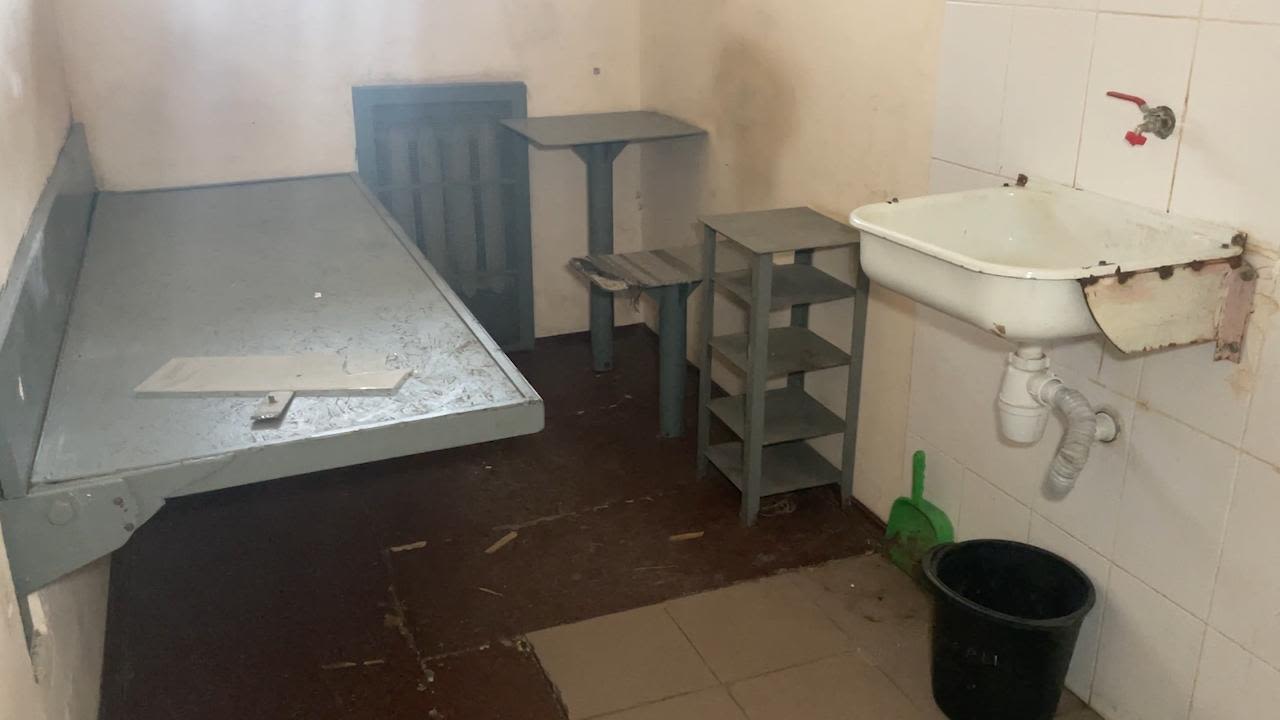
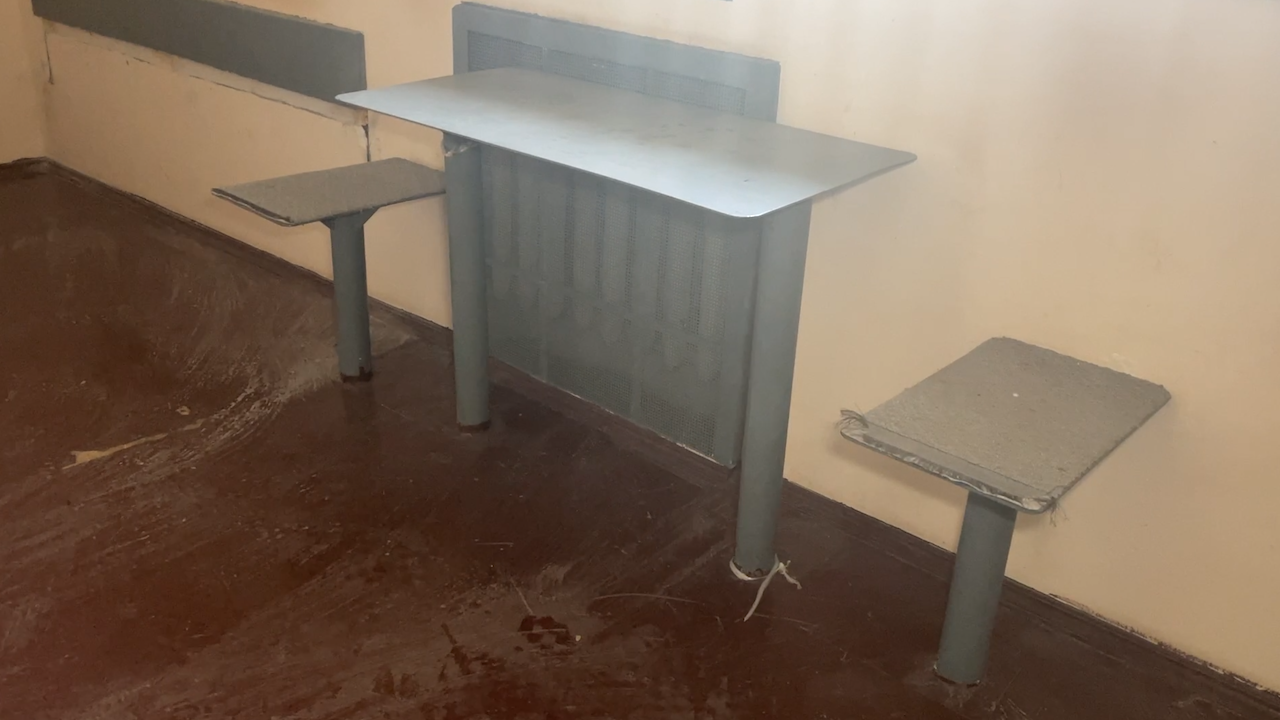
On June 6, 2023 when the Nova Khakhovka dam was damaged releasing flood waters across the Dnipro plain below, Saldo abandoned his dapper suits and donned a camouflage outfit and aviator sunglasses to lead the rescue operation. Shown frequently on state TV, giving the audience the impression that all was going according to plan in occupied east Ukraine, Saldo and Pushilin were apparently the most effective and media savvy of the Kremlin’s proxy leaders. By September 2023, with fighting raging along a frontline that hardly moved over the summer months, the proxies had prepared the ground for delivering Putin the ‘mandate’ he needed to support Russia’s continuing war effort.
Elections to local legislative bodies were held across the annexed Ukrainian regions in September 2023. The vote confirmed acting governors including Saldo, in their positions and delivered victory for Vladimir Putin in the Kremlin.
In November 2023 a court in Odesa sentenced Saldo in absentia to 15 years in prison on charges of high treason and collaboration with Russia’s armed aggression against Ukraine. For Saldo it seems, it’s no longer possible to play both sides and his future is firmly in the Russian camp.
Vladimir saldo appeared hands-on during the floods caused by the Nova Kakhovka dam destruction. Photo from his Telegram account
Vladimir saldo appeared hands-on during the floods caused by the Nova Kakhovka dam destruction. Photo from his Telegram account

